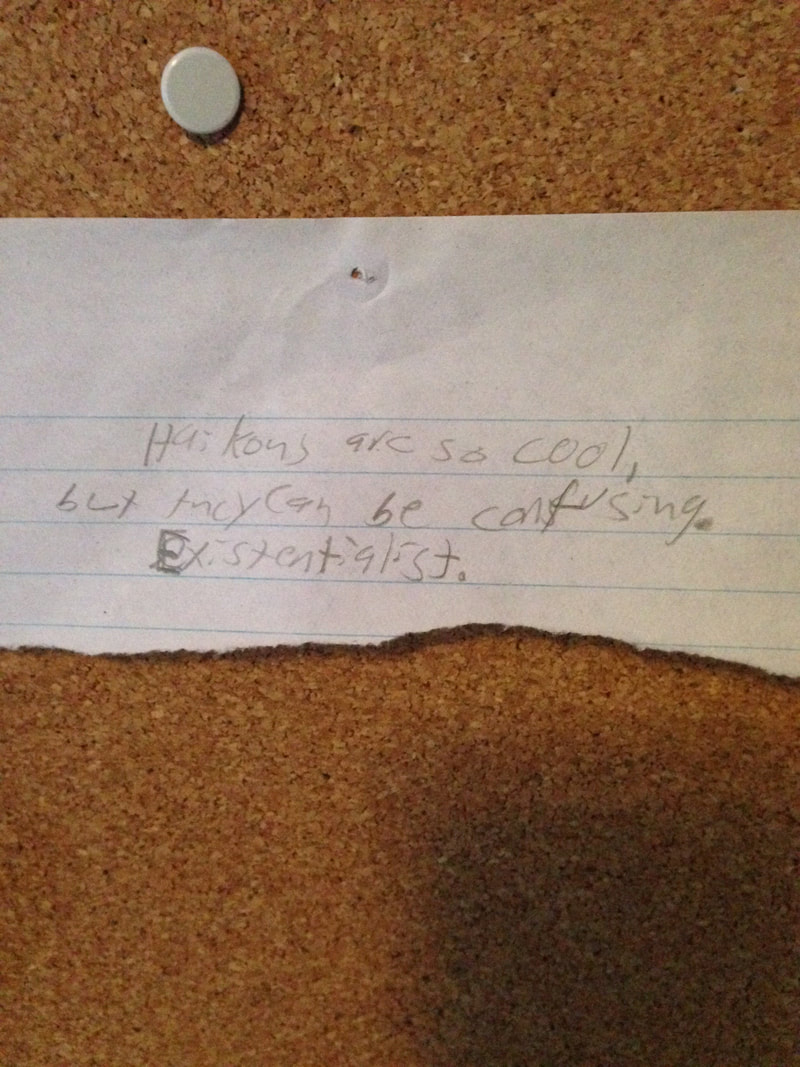|
What is Wabi-Sabi? First of all, I have seen the term written with hyphenation and without. I'm not sure which is the correct way, so I'll stick with the hyphen, if you don't mind. Wabi-sabi is the term used for a Japanese aesthetic that focuses on impermanence, imperfection, and incompleteness. "Wabi-sabi nurtures all that is authentic by acknowledging three simple realities: nothing lasts, nothing is finished, and nothing is perfect." I first came across the term a few years ago and immediately connected with it. Wabi-Sabi embraces imperfection and can elicit deep feelings of melancholy when viewed in everyday objects. Household items, art, and nature are all potential sources where one could find elements of Wabi-Sabi. I recently combed through some of my own photos to see if I could find examples of Wabi-Sabi because I had a sneaking suspicion that my photo-feed would expose a natural predilection to the aesthetic. Sabi by itself means "the bloom of time." It connotes natural progression-tarnish, hoariness, rust-the extinguished gloss of that which once sparkled. It's the understanding that beauty is fleeting... Sabi things carry the burden of their years with dignity and grace. Wabi-Sabi in Writing When looking through my photos, I came across a photo of a Haiku my oldest son scratched onto a piece of paper years ago: I remember wanting to capture not only the words themselves, but the messy penmanship of my then teenage son. There is something beautiful about the imperfection of this piece. It's honest and true to the personality of the person who wrote it. His humor shines through, despite--if not because of--his chicken-scratch. I can't imagine ever trying to fix it by typing it and saving it in a file. It is exactly as it should be. Now, I will admit that I don't remember what I did with this scrap of paper when packing up his things when he left for Air Force BMT, but I'm so glad I have this photo. When it comes to my own writing, Wabi-Sabi can apply to prose, but I feel like it mostly applies to poetry, specifically Raw Poetry. I enjoy reading and writing Raw Poetry because it represents a moment in time that will never happen exactly the same way again. It's like a photograph or a memory. Many times I've tried to go back and edit a raw poem with nothing but frustration to show for it. The raw poems I write tend to begin with a flash of lightning idea, like the "mind-pops" I wrote about last week. Raw poems represent raw emotions and raw ideas, which I find have just as much value as finely-honed verse. I do write poetry that I later re-write and edit several times, however, I have a soft spot for Raw Poetry. I keep a notebook on my desk for raw poems and other writing tidbits. I like to save the poems in a folder on my computer, and it's always a challenge to simply copy the words as they are and not edit as I type. I'm getting better at it though. From the Jana Krause archives, here is an unearthed raw poem from 1997:
I have begun recording my new raw poetry in the Poetry section of this website. Again, the challenge is to keep it raw. Wabi-Sabi in Music When thinking about examples of the Wabi-Sabi aesthetic, I remembered a song in which the artist started singing too early while recording, caught himself, and then came in again. It sounded a bit like a stutter. When I first listened to the song, I wondered why the mistake was included. Later, I learned that when reviewing the playback, his producer assumed the mistake should be removed, but the artist insisted the mistake remain. His reasoning was that humans make mistakes, after all. He embraced imperfection and allowed it to improve the song. Listen to the the very beginning and you'll hear the stutter. He intentionally included the vocal idiosyncrasy in a later verse, amplifying the imperfection. No, this wasn't an excuse to include my favorite band in my blog. Stop rolling your eyes. Wabi-Sabi in Life This week I have made a concrete link between the Wabi-Sabi aesthetic and my writing life. I think the connection has always been there, and that the tenets of Wabi-Sabi fit into my own personality so that it can't help but show up in my writing. Now that I see and feel the connection, I can be mindful of its presence, and that makes it highly enjoyable. Natural beauty exists, whether noticed or not. Lucky are those who observe.
0 Comments
Leave a Reply. |
About meI write novels and poetry and this blog. Categories
All
Archives
January 2022
|


 RSS Feed
RSS Feed
